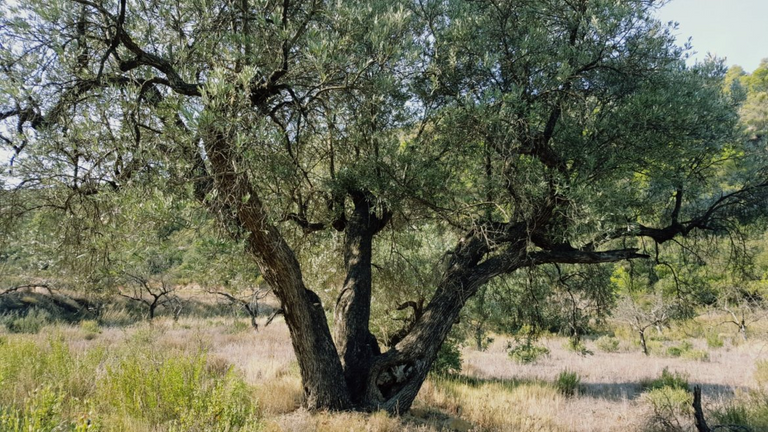
We live in a world where humans, for the most part, have become so disconnected from the natural world around us.
We tear down and destroy the very arteries of this planet that keep it running in synchronicity. We cut down vast areas of woodlands, forests, and jungles to replace them with concrete, mass production of monocultures. We suck the essence out of the earth to produce fossil fuels to power machinery, play god with our natural elements, breaking down compounds, and turning them into plastics, chemicals that harm the environment. It's almost like taking a human, chopping them up into little pieces, and then sticking them back together with little care for the operation of the body as a whole.
This is how I see dysfunction.
Our disconnect then further causes societal dysfunction because we are not meant to be so detached from our natural world. We can see in inner cities and large towns, poverty, drug addiction, unhappiness, depression, suicides, low infant mortality rates, crimes... the list is endless and I could go on about it forever. But I want to turn this into something positive.
How can we use dysfunction to make positive changes so that Earth can function as a whole system?
In permaculture we are taught to look at the system as a whole, to find the best possible function for it. Just like a fractal where within each whole system there are further systems that we break into sectors, they all work together to build up the pieces that work in harmony with each other. The idea is that all the smaller sectors within the system complement each other in many different ways, each equally sharing the energy load and with little to no leftover energy.
Bill Mollison so aptly puts it...
The problem is the solution.
In conventional thinking, we look at the problem to find ways to eradicate it. We mess with the natural function of the problem and either change it or try to stop it.
By contrast, permaculture doesn't look at the problem in the same way. It understands that although we perceive it as a problem it doesn't have to be.
A good example of this is pest control in gardens and agriculture. We normally look for ways to eliminate the pest. But this affects the whole system because that pest may have been food for another organism that would benefit the crop or plant.
I have observed this firsthand in Spain, the farmers can only get grants towards their farming costs if they agree to spray chemicals on their crops. Where I lived, in the province of Aragon, is a major agricultural area that supplies most of Europe with almonds, olive oil, peaches, and nectarines. The results of the pesticide spraying coupled with monoculture farming have reduced the amount of diversity in pollinators and seriously affected the weather. This has made caused an imbalance in insect life with fewer bees and more wasps as just one example and less rain because many natural species of trees and plants are gone, leaving the area much dryer compared to how it was even 20 years ago.
When we take a step back and observe a part of nature untouched by humans it is possible to see how everything connects and works together. Each plant, insect, animal life above and below the surface of the soil works together. To us as humans, we see this as a mess and then try to cut back the wild edges to please our eyes.
Yesterday I saw a guy using a strimmer to cut back one side of the scrubland that is next to the housing estate. It made me so sad that he couldn't see the beauty in what it had to offer. it annoyed me because he wasted all that energy to cut it back. Polluting and killing life, even wasting his own time.
It will grow back and he most probably will come back there and do it all over again. It just all seems so pointless and a dysfunctional part of life. But we need to use this observation and relearn what our ancestors already knew. To find that balance and return the dysfunction into function. Not worry about whether it pleases us visually, but how it works together and completes the ecosystem.
Change is the only constant.
The natural world is constantly changing and evolving. In a forest, trees will die back to make room for different species, scrubland will give way to larger plants and then trees. It's a cycle, one that appears to humans to be chaotic.
Chaos is not the same as dysfunction though. Chaos is the randomness at which things happen, it is natural and it is ever-evolving. Dysfunction is a deliberate choice that humans make when we choose not to live in harmony and alignment with our mother earth.
Do I think true function can arise from disfunction?
Absolutely, but we have to be willing to work as a whole system, in alignment with nature, not go against it. This in turn will help us restore balance and heal societal dysfunction too.
This is my response to The Abundance Tribe's bi-weekly question.
Can true function, arise from basic dysfunction?
― Ursula K. Le Guin, The Dispossessed
~ONE LOVE~

***

CommunityIIDiscord ***

***

Can true function, arise from basic dysfunction?
― Ursula K. Le Guin, The Dispossessed
~ONE LOVE~


CommunityIIDiscord


SEEDS is here to regenerate money.
https://hive.blog/hive-196396/@chrisaiki/helping-new-members-to-understand-the-seeds-ecosystem
great post!
Great @holisticmom! The big idea you're sharing is that we shouldn't see chaos and the randomness of nature as a problem but work with it to achieve the balanced life. Cool👍
Humans are so far gone right now, its taking time to retrace our steps but progress is being made, we'd get there one of these days. The fact that we can still live a balanced beneficial life after we cut down on the harm we're doing to nature is a great plus.